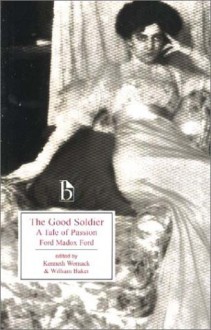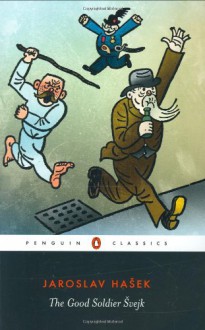

I have had this book on the TBR stack for nearly forever, yet its size was a little off-putting and it was never enough of a priority to overcome that. Then a friend mentioned that he wanted to read it and so I decided to use the opportunity to read it at last.
And perhaps it's because of all of the hype surrounding it, but while I'm enjoying it the novel isn't as good as I thought it would be. Švejk is definitely a great character, but the satirical edge of his adventures isn't as sharp as I thought it would be given all of the comparisons of this book with Catch-22. Now that Švejk is on his way to the front perhaps that will change, or maybe satire is like medicine in that we just saw so many improvements in it over the 20th century to make the leading practitioners back then seem quaint by comparison today.

I have mixed feelings about this book. It's delivery is more impressive than its substance. It is told by an unreliable narrator in a chatty fireside style, but the narrator reveals that he wrote it over a long period and the information that he gives away and also his attitude shifts throughout the book to the other characters. The book is ostensibly about adultery, but this is a vehicle to explore wider themes of love, commitment, trust and moral character. I guess, I feel that that exploration is not the best and I'm not sure that I am all that interested in what Ford things or presents. He exposes the hypocrisy of Edwardian England right before World War I and that is not exactly hard. However, two characters, the narrator and Leonora are fascinating characters, but one character, the girl Nancy, I found unbelievable. The structure is really interesting. The technique is very good. But I don't know that Ford understood people all that well. So a very interesting book, but one that is hard to love.

Sometimes I can handle stories of the idle rich, sometimes I cannot. This is one of the latter, where I really struggled to care about any of the characters, their rich, bored lives and their endless emotional struggles.
I can understand why this novel is so well regarded: it exposed the fraud of "keeping up appearances," it is told in, what was, for the time, an extremely unconventional way, with what I assume is one of the earlier uses of an unreliable narrator. These things should be celebrated.
But I have a really hard time relating to these rich, religious, "proper" people and that makes it much harder to appreciate the literary techniques. Moreover, there is a strong hint of misogyny towards Florence in particular. I understand that the narrator's views are typical of the time, and he really does eventually label Edward a "villain," but for much of the book it seems to be Florence who is the awful person, something that is rather hard to take, given that she is just about the only interesting character.
Ah well, I've finished it. And I get why it's celebrated. I just didn't like it.

I'm like just about every other reader in that I have some real monuments on my TBR shelf. By this I mean not the normal books on my TBR shelf that I will get to in the normal course of time, nor those that really are only on there until I realize that hey will never be alluring or important enough for me to pick them out of the pack. These are the books that I intend to read someday but are never a priority without a purpose and always seem just a little too intimidating to tackle casually. Most of mine are classical literature, ranging from The Odyssey to Grossman's Life and Fate. My desire to read them is deep, but they always seem like too much of an investment of time and mental effort without a compelling reason to do so.
One of the novels that I am most interested in reading is Jaroslav Hašek's The Good Soldier Švejk. If you're not familiar with it it's the First World War equivalent of Heller's Catch-22: an absurdist masterpiece about the insanity of war. When I discovered it for myself (far later than I should have) I picked up a copy and it's been sitting on my shelf ever since -- always tempting, but never demanding.
In the course of a Facebook rant yesterday about A Tale of Two Cities, however, a friend of mine mentioned that he had an ongoing project every summer to read the "Great Works of Fiction." On an impulse I proposed reading The Good Soldier Švejk, which would be just the thing to get me to read it, and he ordered a copy. Could this be the summer of Švejk? Watch this space to find out!